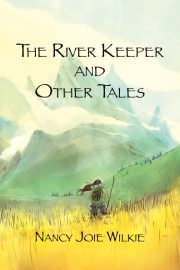How to Rewrite a Story for a Different Call
By Dannye Chase
So you’ve got a solid story and a perfect publication. The problem? They don’t quite match up.
Have no fear! If you wrote it, you can unwrite it, and then rewrite it for that sweet new market.
Before we get started, it’s important to note there are some really good reasons not to rewrite a story. You might have other markets that could work for the piece as-is, or you’ve gotten great feedback on it, maybe even made a short list or two. Or you might just really like the story the way it is.
A rewrite makes more sense if a piece is almost right for a different call, especially a call you would love to answer, if you think it might be fun to revisit the piece from a fresh angle, or if you’ve gotten nowhere with submissions and suspect the darn thing might need rewriting anyway.
If you’re looking to re-spin your story, here’s a list of common alterations:
Word count
This is pretty cut (pun intended) and dried. If your piece is too long, remove an entire scene or shave down a few different scenes. How close a shave you need depends on how tightly you write. If you don’t have words to spare, try summarizing actions or dialogue, or remove an entire character, giving their thoughts and actions to someone else. You can also think of flash: take one scene and make it your whole story.
To expand a piece, you can dive deep into backstory. If backstory’s already there, show that past plot point via flashback. You can also develop a running descriptive metaphor or really get into a character’s head: what goes into their decision-making, for example?
Specifics of the call
This is the stuff that makes the call unique, and the amount you need to change will vary. If you need a whole new theme (i.e.: climate change or diaspora), you may want to write a whole new story. But smaller switches are simpler: if they want train stories, relocate your fantasy tavern to a moving boxcar. Swap your aliens for vampires or dragons, throw in a winter setting, some cats, or a tarot deck, and you’re all set (actually, that sounds like quite a cozy evening). The trick, of course, is to make this added element seem like it was there from the get-go–and that may take some work.
The ending
It’s actually not that hard to change your ending! (Or maybe it’s just that we all have lots of practice changing endings.) Whether you need to break up the romance, kill off some poor character, or leave things ambiguous, the main work will focus on the last scene. But don’t forget you’ll want to set up for this ending, including foreshadowing. If it’s a new twist, be sure to lay the groundwork.
Romance and smut
Some like it spicy and some would rather pretend this spaceship doesn’t even have bedrooms. It’s not too hard to tone down romance: close the door on smut and keep your characters’ thoughts G-rated. You can also remove romance progression from the main plot and just have it appear in the ending. If you are taking out romance entirely, be sure to give your no-longer-happy couple a relationship that is just as emotionally involved, whether it’s friendship or rivalry.
To add romance, take two characters who might potentially fancy each other, then focus on the emotional (attraction, desire, love) as well as the physical (holding hands, or even just fantasizing about holding hands). If you’re adding smut, remember to create sexual tension before those scenes.
Characters
Whether you’re overhauling or simply adjusting your characters, remember there’s more to it than appearance. Characters of different age, gender, and “species” (i.e., alien, elf, or vampire) will all see and be perceived by the world in different ways, so be sure to alter internal monologues and backstory along with those clothes.
Tone
Is this a happy story or the engine of an angst train? It’s all in how you set it up. Is your shelter for stray dragons a bustling, happy place or lonely and in desperate need of a new roof? Is your character a savvy businesswoman who sometimes bends the rules or a ruthless manipulator? When two characters argue, is it an otherwise beautiful day, or are they fighting to breathe in the relentless cold? You can also strike a tone via metaphor: Is your rivals’ relationship like beautiful flowers fighting over the same garden space or two dying campfires just trying to be the last one to produce a spark?
Genre
In my experience, this is the biggest change. Fantasy to sci-fi may be relatively easy if you just need to switch dragons for robots. For crime and mystery, you’ll have to lay clues and ask questions. For Weird West, add, well, the West. The hardest change might be from horror to anything else. Horror has its own distinct tone and traditional unhappy ending. My advice is to keep as much of the horror as you can but change it to scary sci-fi, monstrous fantasy, or a bloody mystery. To scare-ify a pleasant story, get creepy with your description (see the section on changing tone above) and definitely kill off that poor character.
The main thing to keep in mind when considering a rewrite is time. Would it be a good use of your resources to make big changes to a story or would it be easier to write a new one? My simplest major rewrite was changing a found-footage horror story into an audio script—made easier because it was mostly dialogue to begin with. I’ve also had success expanding and shrinking word counts, toning down smut (very sad), and even pulling one scene from a story that wasn’t working and writing a whole new story around it. Remember: it’s your story, your creation. If it doesn’t shine the way you want, you can always change it.
Bio
 Dannye Chase (she/her) is a queer, married mom of three who lives in the US Pacific Northwest. She claims to write in many genres, but her oldest offspring suspects it all boils down to either romance or horror…or somehow both. Dannye’s short fiction has or will appear in the podcast Thirteen, the anthology “Anna Karenina Isn’t Dead” from Improbable Press, and Allegory and Nocturne magazines. You can find her on Twitter and Facebook as Dannye Chase, and at DannyeChase.com, where she gives writing advice and weird writing prompts.
Dannye Chase (she/her) is a queer, married mom of three who lives in the US Pacific Northwest. She claims to write in many genres, but her oldest offspring suspects it all boils down to either romance or horror…or somehow both. Dannye’s short fiction has or will appear in the podcast Thirteen, the anthology “Anna Karenina Isn’t Dead” from Improbable Press, and Allegory and Nocturne magazines. You can find her on Twitter and Facebook as Dannye Chase, and at DannyeChase.com, where she gives writing advice and weird writing prompts.


